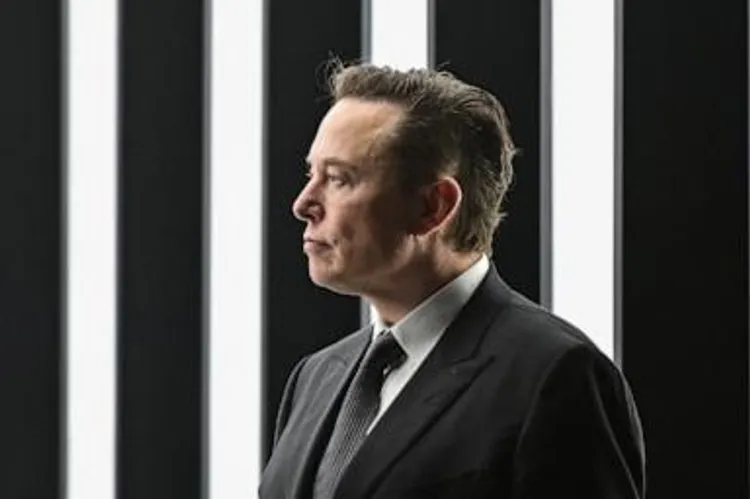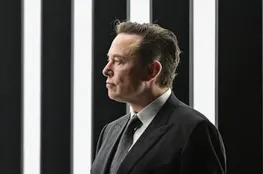Tesla’s board proposed a compensation package for CEO Elon Musk that would catapult the tech entrepreneur’s wealth above $1 trillion if the company fulfills a set of rigorous benchmarks over the next decade, according to a securities filing on Friday. Musk would rake in roughly $900 billion over the duration of the agreement, making him the best-compensated CEO ever recorded. The full compensation would only be delivered if Musk vaults the company from its present value of $1.1 trillion to $8.5 trillion, a figure that exceeds the current combined market values of Meta, Microsoft and Google-parent Alphabet, the filing says.
This unprecedented deal reflects Tesla’s ambition to solidify Musk’s leadership and accelerate the company’s growth trajectory. The compensation structure is intricately linked to achieving specific milestones, primarily focused on expanding Tesla’s market dominance and technological advancements. Key components of the plan include achieving a substantial increase in the company's valuation, reaching a specific production target, and establishing a robust presence in the burgeoning autonomous vehicle market. The board’s rationale centers on the belief that aligning Musk’s financial incentives with the company’s long-term success is crucial for navigating the current period of intense competition and technological disruption. The proposal represents a bold move designed to retain Musk’s unwavering commitment to Tesla’s vision and strategic direction. Furthermore, the plan includes a significant increase in Musk’s ownership stake, affording him greater control over the firm, Goldstein noted.
Elon Musk, considered the world’s richest person, currently boasts a net worth of about $430 billion, according to Forbes. If he were to receive the full pay package, Musk would become the world’s first-ever trillionaire. A detailed set of compensation tranches and company benchmarks would help ensure that Musk remains at Tesla over a long-term period and aligns his performance with the company’s financial success, board members Robyn Denholm and Kathleen Wilson-Thompson said in a letter to Tesla shareholders. "Tesla does not currently have a long-term CEO performance award in place to retain and incentivize Elon to focus his energies on Tesla and lead us through this pivotal moment in our history. It’s time to change that," Denholm and Wilson-Thompson wrote.
Seth Goldstein, an analyst at research firm Morningstar who verified an ABC News estimate of the potential value of the compensation proposal, said the payment plan would help ensure Musk’s continued focus on Tesla. "It rewards Musk for growing Tesla’s market cap and delivering strong shareholder returns," Goldstein said. "This removes a key near-term risk for the stock if Musk were to leave Tesla."
The compensation package also includes a set of production goals, including one million Robotaxis in commercial operation and the delivery of one million humanoid robots over the next 10 years.
However, the proposal isn’t without its complexities and legal challenges. A Delaware judge previously invalidated a $50 billion pay package for Musk put forward by the company in 2018, citing concerns about board independence and undue influence by Musk. The current proposal aims to address these concerns by emphasizing a more robust framework for governance and shareholder oversight. The board’s letter to shareholders underscores their commitment to transparency and accountability, aiming to build confidence in the new compensation structure. The situation highlights the delicate balance between rewarding a visionary CEO and ensuring responsible corporate governance.
Musk has appealed the ruling. Tesla’s profits fell 16% over a three-month period ending in June that overlapped with the end of Musk’s time as a "special government employee" with the Trump administration and his ensuing public clash with President Donald Trump, an earnings release in July showed. The losses marked the second consecutive quarterly revenue drop for the company. Musk's work with the Trump administration, which ended in May, set off demonstrations at Tesla dealerships worldwide in protest of his effort to slash government spending as leader of the Department of Government Efficiency.
During an earnings call with analysts after the second quarter results were released, Musk fielded a question about his control of the company, which a Morgan Stanley analyst said was 13%. "As I mentioned before, I think my control of Tesla should be enough to ensure that it goes in a good direction, but not so much control that I can’t be thrown out if I go crazy," Musk said in jest. The proposal’s success hinges on Tesla’s ability to execute its ambitious plans, navigate regulatory hurdles, and maintain investor confidence. The legal battles and prior setbacks demonstrate the significant challenges involved in securing such a substantial compensation package for a CEO of Musk’s stature.
Ultimately, the compensation package represents a high-stakes gamble—one that could dramatically reshape Tesla’s future and solidify Musk’s position as the world’s wealthiest individual.
























